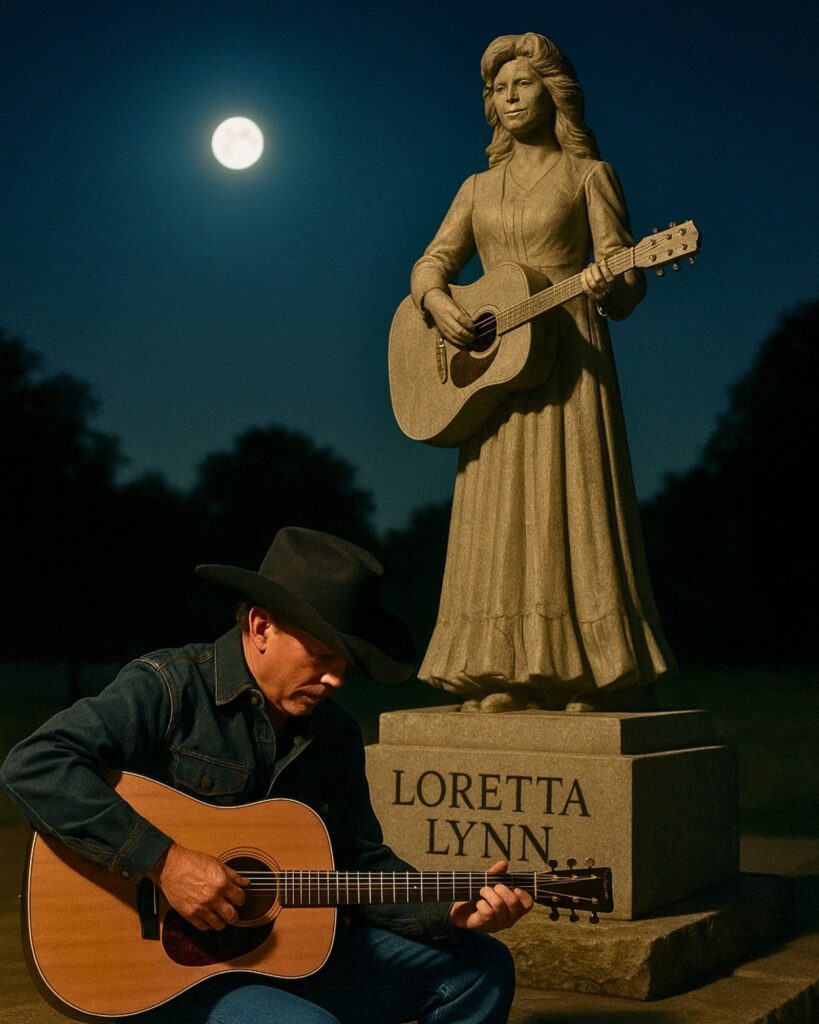
In Hurricane Mills, Tennessee, beneath the towering statue of Loretta Lynn, there is a story people still whisper about. Some say they saw him there one quiet evening—a man sitting alone, a guitar resting gently in his hands. There was no stage, no glittering lights, no roaring crowd. Only the stillness of the Tennessee hills, and the weight of a memory too deep to fade.
The brim of a black cowboy hat hid his face, but for anyone who knew country music, there was no mistaking who he was. It was George Strait—the King of Country—paying his respects in the most personal way he knew how. He didn’t come to be seen. He didn’t come for applause. He came for Loretta.
They say he softly strummed the opening chords of a song he once shared on stage with her. His voice, low and steady, carried through the air like a prayer. No microphones, no cameras—just a man and a melody, tied forever to a friendship and a legacy that defined an era of country music. The statue of Loretta seemed to watch over him, the Queen of Country listening from somewhere beyond, as if smiling at the gift.
When the song ended, silence filled the air. He stood for a moment, letting the last note fade into the wind. Then, with a tenderness that surprised those who were watching from afar, he whispered words that carried more weight than any speech, more beauty than any eulogy:
“This one’s for you, Loretta.”
And then he was gone, leaving nothing behind but the memory of a fleeting, private tribute. A reminder that even legends grieve, and even kings bow their heads when they stand before a queen.
For those who tell the story today, it has become more than a rumor—it is a memory they carry like a song. A moment when George Strait, stripped of all the grandeur of fame, was simply a man honoring a friend. And in that quiet night beneath the statue of Loretta Lynn, the music of love, loss, and remembrance played once more.